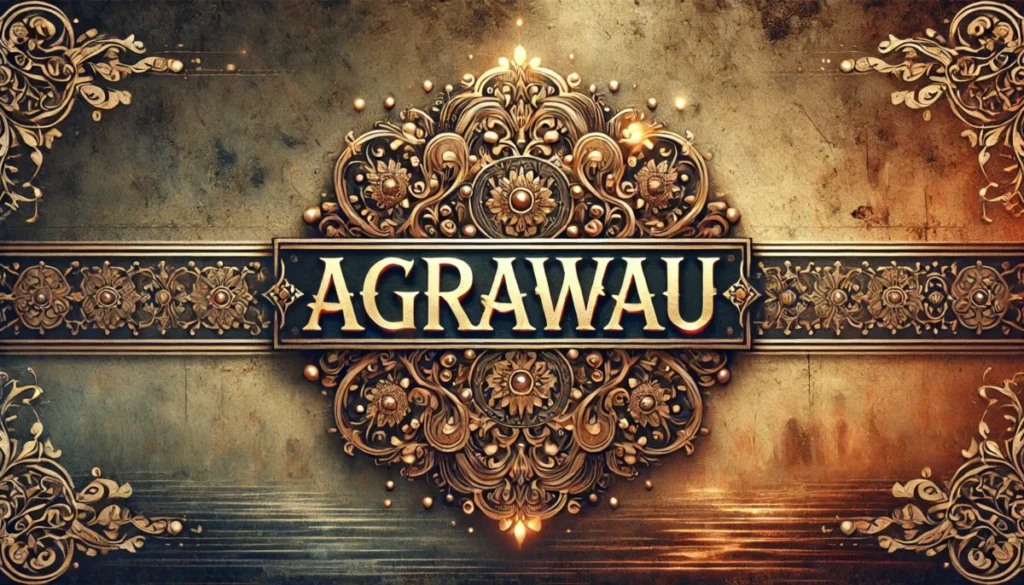Agrawau, a term that carries cultural significance and historical depth, refers to a community or region with roots deeply embedded in tradition, social cohesion, and historical relevance. Understanding the importance of Agrawau requires exploring the unique cultural practices, history, and the social fabric that holds the community together. This article delves into the essence of Agrawau, highlighting its historical context, cultural practices, and its modern-day relevance.
Table of Contents
The Origins of Agrawau
Agrawau’s history is as rich as it is diverse. The term can trace its roots to regions and communities that have, for generations, shared common traditions and societal values. Its origins lie in ancient settlements that emphasized community living, a sense of belonging, and a shared responsibility toward social development.
These communities were known for their emphasis on trade, agriculture, and local craftsmanship. Over time, Agrawau became a symbol of resilience and adaptation, thriving through different eras of economic and social change. Today, the cultural heritage of Agrawau is still celebrated, with traditions passed down through generations.

Cultural Practices in Agrawau
Agrawau’s cultural identity is defined by its rich traditions, festivals, and social structures. Festivals play a significant role in the lives of people from this community, where every event is a chance to come together and celebrate their heritage. These gatherings often include traditional music, dance, and rituals, preserving customs that have been carried forward for centuries.
Moreover, the concept of unity and family ties remains strong in Agrawau, with several generations often living under one roof. Respect for elders, the importance of education, and strong family values are cornerstones of their culture. The passing of these traditions from generation to generation ensures that the cultural fabric remains intact.
The Economic Significance of Agrawau
Traditionally, Agrawau’s economy was centered on agriculture and local trade. Agriculture has always been the backbone of the community, with many families relying on farming as their primary source of income. Over the years, Agrawau has diversified its economy by incorporating small-scale industries and local craftsmanship, which has provided new avenues for economic development.
Today, Agrawau is not just about traditional economic practices but also about modern-day entrepreneurship. Many young individuals from this community have embraced technology and innovation, blending tradition with modernity to create new economic opportunities. This blend of the old and new has allowed Agrawau to remain relevant in a rapidly changing world.
Modern-Day Agrawau: Embracing Change While Preserving Traditions
While Agrawau remains deeply rooted in its cultural traditions, it has also embraced modernization. The younger generation of Agrawao has managed to keep its traditions alive while adapting to contemporary lifestyles. Education has played a crucial role in this transformation, with many young people pursuing higher education and entering diverse professional fields.
However, modernization in Agrawao has not come at the cost of its cultural identity. Festivals, family gatherings, and social functions remain central to the community’s way of life. The careful balance between tradition and modernity is what makes Agrawao unique, allowing it to thrive in both the past and present.
Challenges Facing Agrawau
Despite its strong cultural foundation and economic growth, Agrawao faces several challenges. One of the primary concerns is the migration of younger generations to urban areas in search of better opportunities. This shift has led to a gradual decline in the population of traditional communities, threatening the preservation of their customs and way of life.
Moreover, environmental challenges such as climate change and water scarcity have impacted agriculture, which remains a key aspect of Agrawao economy. The community is now exploring sustainable farming practices and renewable energy sources to combat these issues. The focus on eco-friendly solutions reflects Agrawao commitment to preserving the environment for future generations.
The Role of Education in Agrawau’s Growth
Education has been a driving force in Agrawao transformation. The community places a high value on education, seeing it as the key to future success. Over the years, there has been a significant increase in the number of schools and educational institutions in Agrawao allowing more children access to quality education.
Many young people from Agrawao have gone on to pursue higher education in various fields, including science, technology, and the arts. This new wave of educated individuals is shaping the future of Agrawao, contributing to both the local and national economy. Their knowledge and skills are helping to modernize traditional practices, while still maintaining a deep respect for their heritage.
The Importance of Community in Agrawau
Community plays an integral role in Agrawao. The sense of belonging, shared responsibilities, and mutual support make Agrawaoa close-knit society. Social gatherings, festivals, and religious events are opportunities for individuals to come together, reinforcing the bonds that unite them.
Community support extends beyond celebrations, as people in Agrawao often help each other in times of need. Whether it is financial support, emotional backing, or assistance with everyday tasks, the spirit of helping others is deeply ingrained in the culture. This sense of unity has allowed Agrawao to thrive despite the challenges it has faced over the years.
The Future of Agrawau: Opportunities and Growth
Looking ahead, Agrawao has a bright future, with opportunities for growth in several sectors. The community’s rich heritage and strong economic foundations make it well-positioned for further development. By embracing technology and innovation, Agrawao can expand its economic base while preserving its traditions.
Tourism is another potential growth area for Agrawao. With its unique cultural heritage and scenic landscapes, Agrawao can attract visitors who are interested in experiencing traditional ways of life. Sustainable tourism practices can ensure that the community benefits economically without compromising its cultural integrity.

How Can Agrawau Preserve Its Cultural Identity?
As modernization continues to shape Agrawao preserving its cultural identity becomes increasingly important. While the younger generation is bringing new ideas and innovations, the community must find ways to maintain its traditions. This can be achieved through education, where children are taught about their heritage from a young age.
Festivals and cultural events should continue to be celebrated, ensuring that traditions are passed down to future generations. Additionally, promoting local craftsmanship and agricultural practices will help retain the community’s connection to its roots.
Conclusion: Agrawau’s Unique Blend of Tradition and Modernity
Agrawao is a shining example of a community that has successfully balanced its rich cultural heritage with the demands of the modern world. The strength of Agrawao lies in its people—their resilience, their commitment to tradition, and their willingness to embrace change. As Agrawao moves forward, it continues to be a model of how tradition and innovation can coexist.
This blend of old and new has made Agrawao a dynamic and thriving community, one that is prepared to face future challenges while preserving the essence of its identity. Through education, community support, and a focus on sustainability, Agrawao will continue to grow and evolve, ensuring that its legacy lives on for generations to come.

FAQs
1. What is Agrawau known for?
Agrawao is known for its rich cultural heritage, traditional festivals, and strong sense of community. It has a history of agricultural and trade-based economies and has successfully embraced modernization in recent years.
2. How is Agrawao preserving its traditions?
Agrawao preserves its traditions through education, cultural events, and festivals that celebrate its heritage. The community emphasizes the importance of family values and passing down customs to future generations.
3. What challenges does Agrawao face today?
Agrawao faces challenges such as youth migration to urban areas, environmental issues affecting agriculture, and the need to balance modernization with the preservation of cultural identity.
4. What role does education play in Agrawao growth?
Education has been crucial in Agrawao transformation. It has provided the younger generation with opportunities to pursue higher education and professional careers, contributing to the community’s economic and social development.
5. How does Agrawao balance tradition and modernity?
Agrawao balances tradition and modernity by incorporating new technologies and economic practices while maintaining a deep respect for its cultural heritage.


